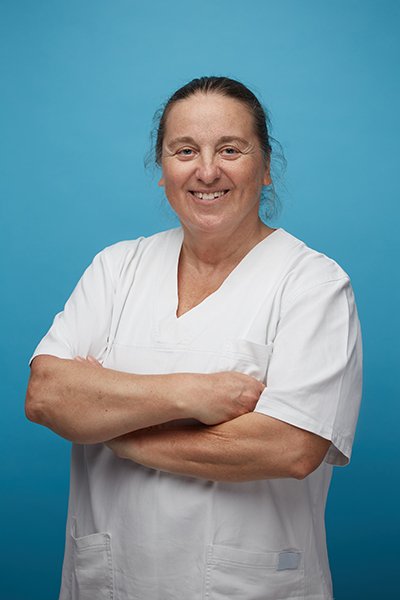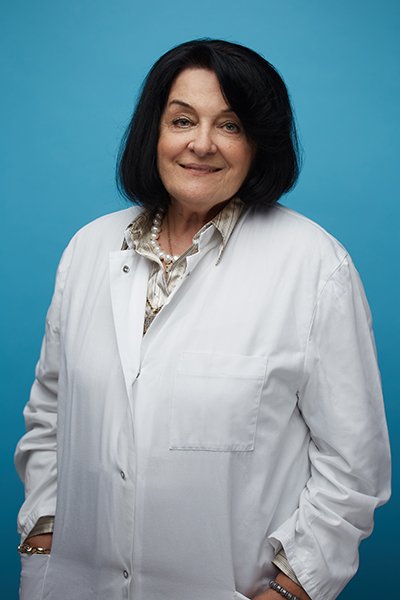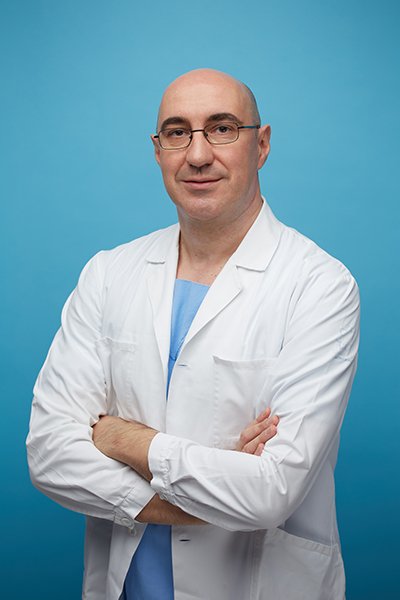Most patients with cardiac problems cannot fit into the “waiting lists” and trips “from one hospital to another”. CODRA Hospital Cardiology Center, being the one-stop-shop as it is, provides you with the shortest possible path from diagnosis to therapy.

For many years, the CODRA Hospital has been developing its Cardiology Center and today we can proudly state we provide advanced patient care in solving problematic cardiac health conditions, from diagnosis, through treatment, to surgery and hospital care. Due to constant investment in the most modern diagnostic equipment, an operating block equipped according to all the latest world protocols, led by top cardiologists and cardiac surgeons from Montenegro and the region, CODRA Hospital is able to provide its patients with a complete service at an enviable level and in compliance with the standards that are practiced in the world’s largest clinics.
In CODRA Hospital, “Academic Cardiology Team”, the first of its kind in Montenegro, operates complying with the example of all modern European and world cardiology clinics. The main principle of service we provide to patients is “one-stop-shop” and “all in three days” – basic diagnosis and determination of therapy if necessary.
The “Academic Cardiology team” is consisted of professors and associates of Faculty of Medicine University of Belgrade, the seasoned cardiologists who work at the Clinical Centre of Serbia, Institute for Cardiovascular Diseases Dedinje, Clinical and Hospital Centers “Zvezdara” and “Dr. Dragiša Mišović”.
Treatments
Complete non–invasive cardiology diagnostics
ECG: information about the current function of the heart, whether it is working properly, fast or slow, “skips” or pauses in its work or is working completely irregularly. Patients with completely irregular heart function require a special type of medication to prevent a possible stroke.
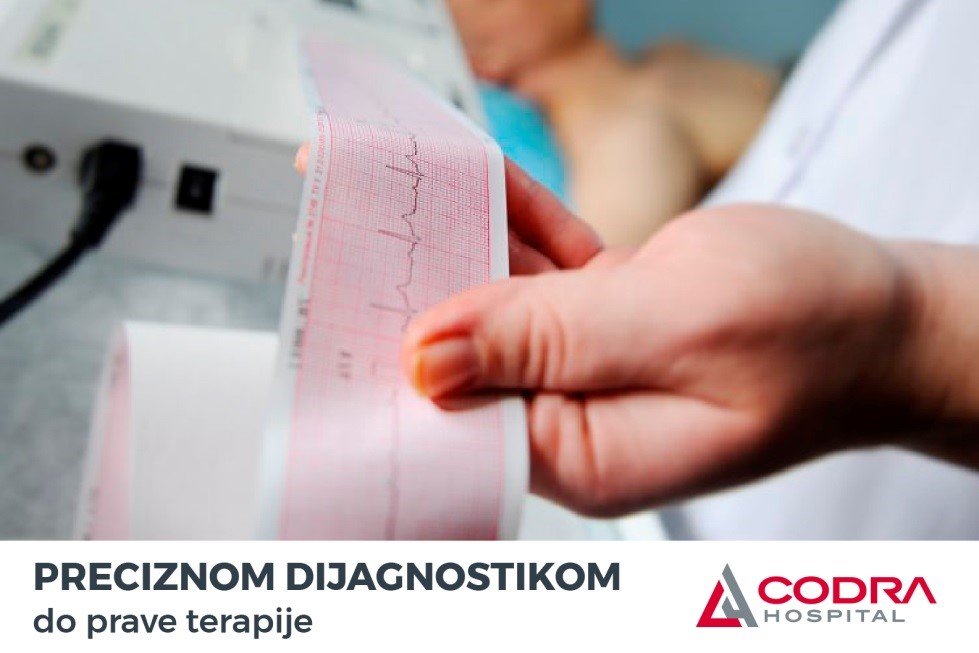
24-72h HOLTER ECG: Follows your heart rate during 24h-48h or 72h.
24h HOLTER BLOOD PRESSURE KRVNOG PRITISKA: Indicates how the pressure “behaves” during 24h; if and when it deviates from normal values, especially what are its values during the night. The data shows that stroke most often occurs in the early morning hours and that the reason for it is a “jump” in blood pressure during the waking phase.
TREADMILL STRESS TEST: It indicates how the heart works under stress; whether the patient is in poor condition or there are problems with the blood vessels of the heart, which generate a feeling of “chest discomfort”.
STRESS ECHO TEST: Very precise stress test with ECG under ultrasound control. If there is a problem with the heart’s blood vessels, it will show up on an ultrasound more precisely than on a regular EKG or a regular treadmill stress test.
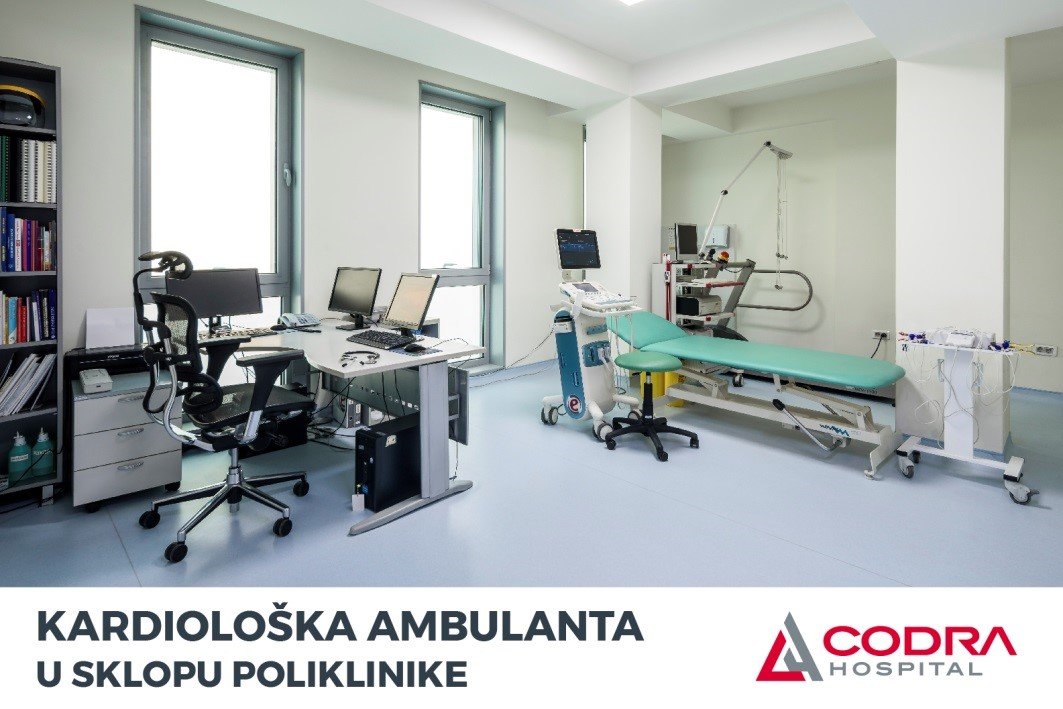
DOBUTAMINE STRESS ECHO TEST: performed with the help of the drug Dobutamine, with the view to accelerate the heart rate. Simultaneously, an ultrasound of the heart is performed. It is a replacement for the classic stress test for people who cannot walk for any reason or cannot do the classic stress test due to rapid fatigue. It is very reliable in cases in which patients are suspected to have a heart blood vessel disease, but also in those who already have a proven disease and control the effect of the drugs they use.
CFR TEST-ASSESSMENT OF BLOOD FLOW THROUGH THE BLOOD VESSELS OF THE HEART USING ULTRASOUND: the speed of blood movement through the blood vessels of the heart is assessed with the help of ultrasound and the drug Adenosine. If there is a narrowing of the blood vessel, the speed of blood movement will decrease. It is done when heart blood vessel disease is suspected before we refer the patient to coronary angiography. It is also performed in cases in which patients have implanted stents, when it is suspected that they have narrowed or become blocked.
HEART ULTRASOUND: The most valuable examination in cardiology. It gives information about how the heart looks, how it works, how strong it is, how the heart valves behave. Based on these data, we can see if some diseases, such as high blood pressure or diabetes or a previous heart attack left consequences on the heart muscle and to what extent, we determine the therapy and a decision is made whether the patient will continue to have heart valve or blood vessel surgery. It is also done on healthy people as part of a routine cardiological check-up.
TRANSESOPHAGEAL ULTRASOUND or “EXAMINATION OF THE HEART FROM THE INSIDE”: A very precise ultrasound performed in a specific way using an ultrasound probe. This method is the “gold standard” for determining the existence of blood clots in some small heart cavities that cannot be seen by using “ordinary” ultrasound. It is performed if the possibility of a stroke is suspected in patients with irregular heart function, as well as in patients who are candidates for heart valve surgery.
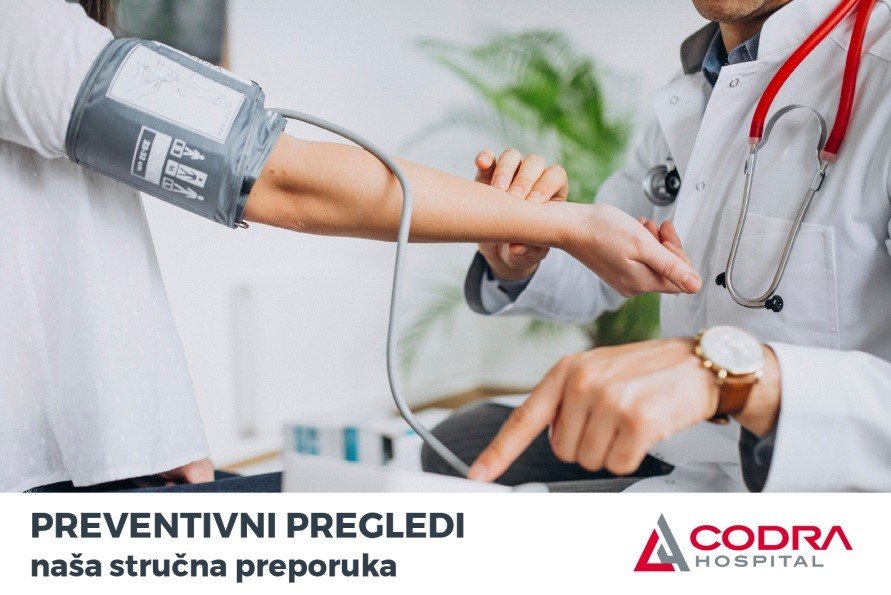
SCANNER (MSCT) CORONARY ANGIOGRAPHY
Scanning (MSCT) coronary angiography is a modern and very effective method establishing diagnosis and assessment of atherosclerotic lesions of the coronary arteries (clotting of the blood vessels of the heart). The examination itself lasts about 10 minutes and is completely painless. Given that it is a non-invasive method, there is no possibility of complications during the examination itself, as opposed to standard coronary angiography.
The examination includes a scanner imaging of the coronary arteries and an assessment of the extent and severity of blood vessel occlusion. Based on this examination, the doctor provides the patient with information on whether the blockage exists, to what extent it is and what is the best form of treatment for these changes (medication or surgery – stent placement or bypass).
Scanning (MSCT) coronary angiography is the best way to visualize the patency of bypasses and/or stents in patients who have already had heart surgery and/or who have undergone aortocoronary bypass . With this method, we can inspect the location of the bypass connection in full detail, as well as its patency along its entire length. Therefore, MSCT coronary angiography is a superior diagnostic method that is practiced in all world cardiology centers.
ERGOSPIROMETRY: Soon in CODRA!!! Heart and lungs are closely connected. When one of them suffers the other one does to. This is the only test that determines whether you ‘’lose breath’’ after a small exercise as a result of illnesses of the heart or the lungs.
CODRA team of experts in Cardiology Centre:
Prof Dr Arandjelović Aleksandra, cardiologist
Prof Dr Branislav Stefanović, cardiologist
Prof Dr Milica Dekleva-Manojlović, cardiologist
Prof Dr Aleksandra Nikolić , cardiologist
Dr Bojan Stojanović, cardiologist
Dr Ana Popović, cardiologist
Ass dr sci Jelena Suzić-Lazić, cardiologist
Dr sci med Milena Pavlović-Kleut, cardiologist
Dr sci med Dragana Košević, cardiologist
Dr Dejan Kojić, cardiologist-arrhythmology/electrophysiologist

